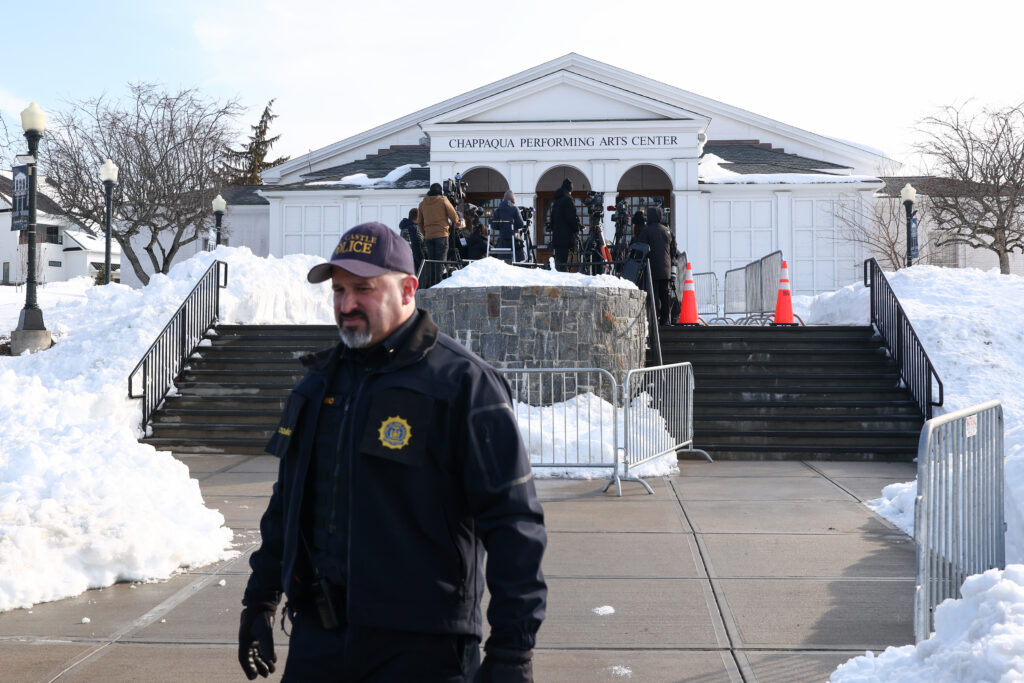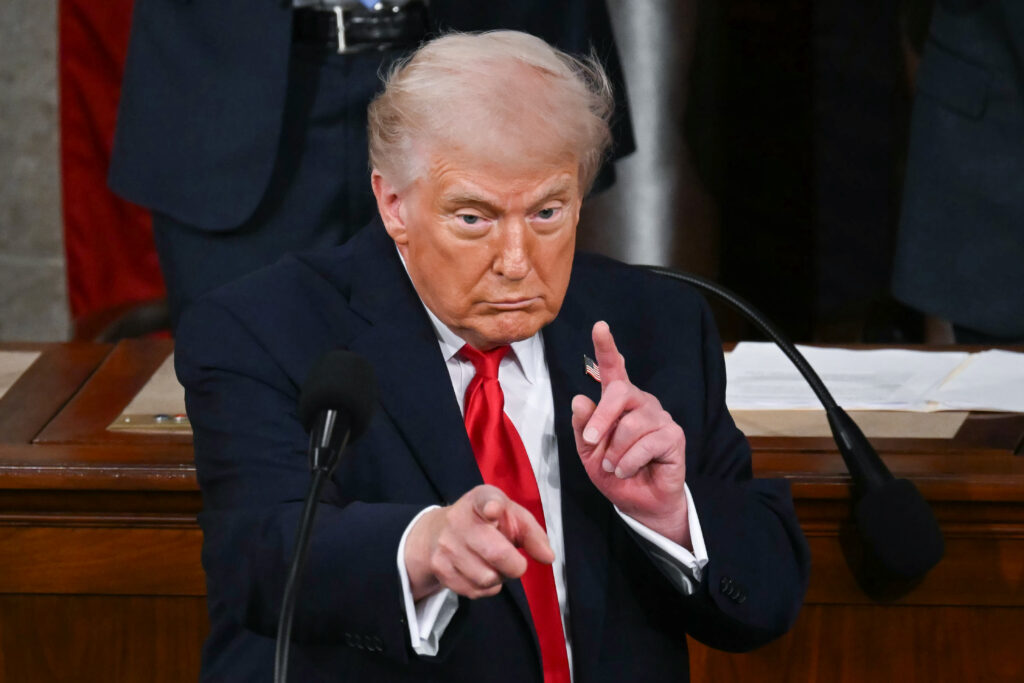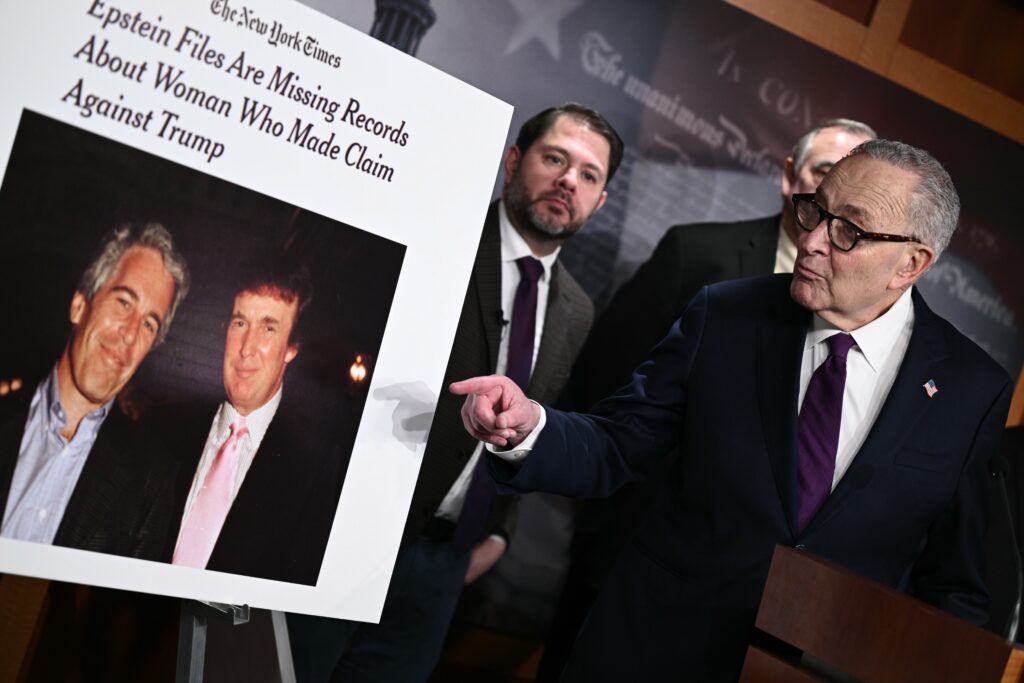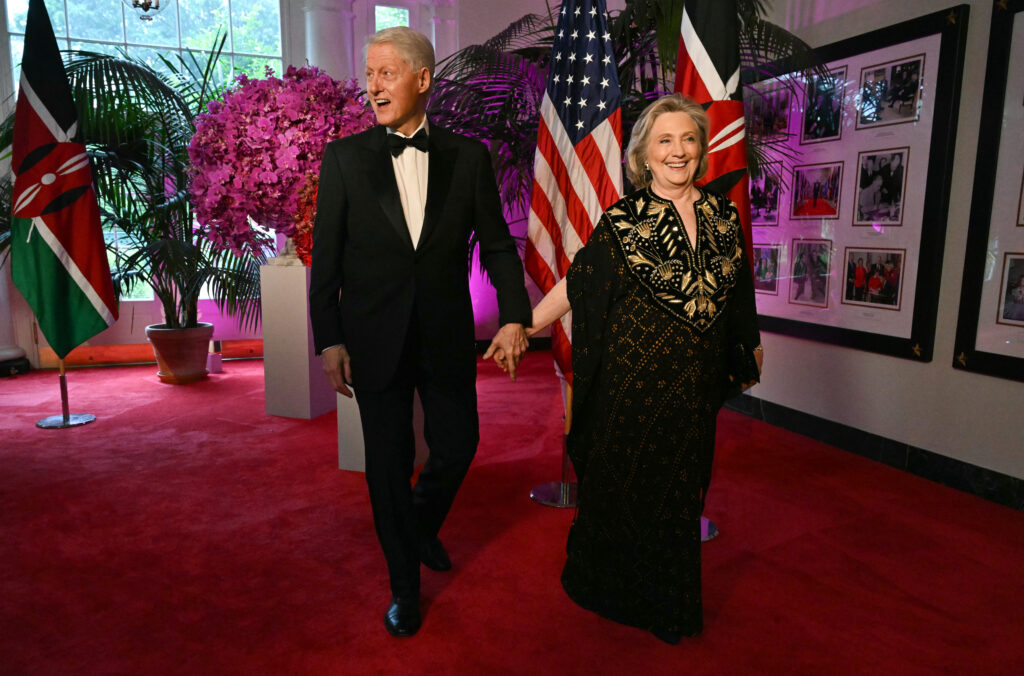Hillary Clinton quizzed on Epstein, calls for Trump to testify
Hillary Clinton used her forced appearance Thursday before a Republican-led panel probing Jeffrey Epstein to go on the offensive and demand President Donald Trump testify about his own links to the sex offender.Clinton told the congressional committee she had no information about Epstein’s crimes, never recalled encountering him, and had never visited his island or flown on his plane, accusing the panel of trying to “protect one public official” — Trump.James Comer, who chairs the committee that will also grill former president Bill Clinton on Friday, said “the purpose of the whole investigation is to try to understand many things about Epstein” — the deceased convicted sex offender.”There were a lot of questions that we asked that we weren’t satisfied with the answers that we that we got,” he added after the deposition concluded.Clinton challenged the panel saying “if this committee is serious about learning the truth about Epstein’s trafficking crimes…it would ask (Trump) directly under oath about the tens of thousands of times he shows up in the Epstein files.”While her deposition was behind closed doors, Clinton posted her opening statement on social media, with the transcript expected to be published upon approval by her lawyers. A video will follow within 24 hours, Comer said.The top Democrat on the committee, Robert Garcia, also called on Trump to testify “to answer the questions that are being asked across this country from survivors.””That should happen immediately,” he said later.Democratic committee member Suhas Subramanyam said that “missing FBI files” omitted from the Epstein documents disclosures contain “serious accusations around sexual abuse” against Trump.The Republican-led House Oversight Committee is probing those who were linked to Epstein, who died in a New York jail cell in 2019 while awaiting trial.The Clintons had initially rejected subpoenas ordering them to testify in the panel’s probe, but the Democratic power couple agreed to do so after House Republicans threatened to hold them in contempt of Congress.Hillary Clinton said in her opening statement to the panel that it “justified its subpoena to me based on its assumption that I have information regarding the investigations into the criminal activities of Jeffrey Epstein and Ghislaine Maxwell.” “Let me be as clear as I can. I do not.”- Epstein’s network -The hearing was dramatically paused for a brief time after a photo of Clinton in the deposition was posted online — an apparent breach of the closed-door arrangement.”What is not acceptable is oversight Republicans breaking their own committee rules… by releasing photos,” Subramanyam said.Democrats say the investigation is being weaponized to attack political opponents of Trump rather than to conduct legitimate oversight.Trump and Bill Clinton, both 79, feature prominently in the recently released trove of government documents related to Epstein, but said they broke any ties with the financier before his 2008 conviction in Florida as a sex offender.Mere mention in the files is not proof of having committed a crime.The Clintons called for their depositions to be public but the committee insisted on questioning them behind closed doors, a move Bill Clinton denounced as akin to a “kangaroo court.”The depositions are being held in Chappaqua, New York, where the Clintons reside.Dozens of journalists have converged on the wealthy hamlet and the Secret Service erected metal barricades around the arts center where the deposition is happening.One elderly couple picketed with a sign demanding Comer depose Trump.Local shopper Bernie Hunt, 74, said “Congress is investigating, they have the right to do so.”Jim Levine, 34, who lives near Chappaqua, said “what a privilege” that the Clintons were deposed near their home. “Lock her up, that’s what I say.”Bill Clinton has acknowledged flying on Epstein’s plane several times in the early 2000s for Clinton Foundation-related humanitarian work, but said he never visited Epstein’s private Caribbean island.Epstein’s accomplice Maxwell, 64, is serving a 20-year prison sentence for sex trafficking.She appeared via video-link before the House Oversight Committee earlier this month but refused to answer questions, invoking her Fifth Amendment right not to incriminate herself.Epstein cultivated a network of powerful business executives, politicians, celebrities and academics.






